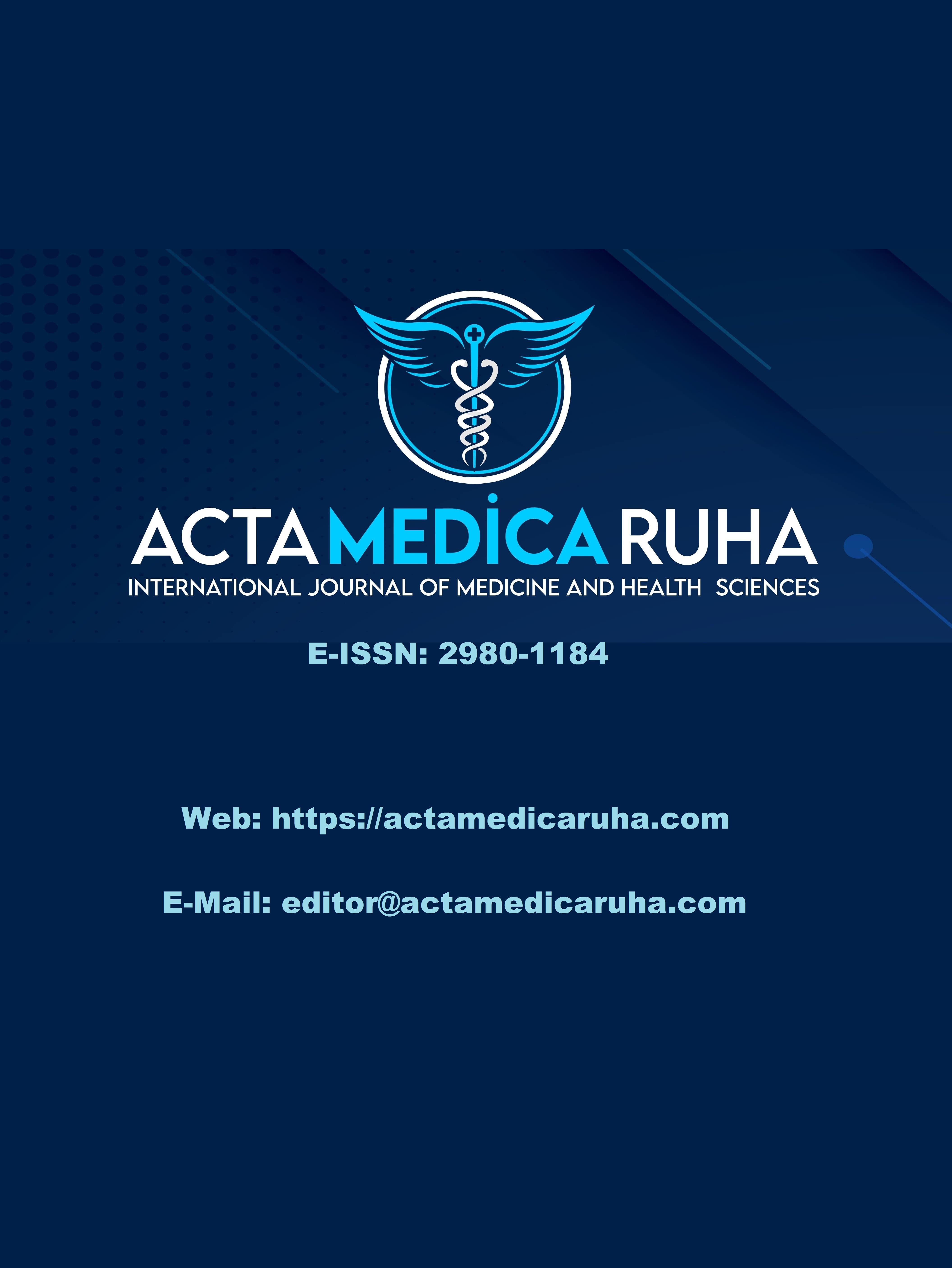Evaluation of Families' Attitudes, Knowledge, and Behaviours About Childhood Special Vaccines in Turkey and Comparison of Sociodemographic Characteristics
Research Article
DOI:
https://doi.org/10.5281/zenodo.10004368Keywords:
vaccination, meningitis, rotavirus, human papillomavirus (HPV), family attitudeAbstract
Introduction: The vaccination schedule for infants is determined by the Ministry of Health, and there are routine vaccinations that should be given to infants.
Aim: In this study, we aimed to evaluate families' attitudes, knowledge, and behaviors about rotavirus, meningococcal, and HPV vaccines that are not in the vaccination schedule and to compare them socio-demographically.
Methods: This study investigated the vaccination status of 150 children aged 0 to 15 years brought to the pediatrics outpatient clinic of Ümraniye Training and Research Hospital and Acıbadem Şinasi Can Hospital. Attitudes and knowledge behaviors of families about rotavirus, meningococcal, and HPV vaccines, which are not in the vaccination calendar of the Ministry of Health, were evaluated, and their sociodemographic behaviors were controlled. The data collected from the mothers through questionnaires are presented as a descriptive analysis.
Results: Of 57.3% of the mothers who applied to Ümraniye State Hospital did not vaccinate their children against rotavirus, and 80% of the mothers who applied to Acıbadem Hospital had their children vaccinated against rotavirus. Of 70.9% of the mothers who applied to Ümraniye State Hospital stated that they did not have meningitis vaccination, and 67.1% of those who applied to Acıbadem Hospital stated that they had vaccination (p:0.000). Almost half of the (49.4%) of the mothers who applied to Ümraniye State Hospital stated that they had not heard the word HPV virus, but 79.7% of the mothers who applied to Acıbadem Hospital stated that they had heard the word HPV virus (p:0.000).
Conclusion: Regarding the outcomes of this research, one can state that there are socio-demographic and behavioral differences in families who applied to private or state hospital.
References
Anderson EJ, Daugherty MA, Pickering LK, et al.Protecting the Community Through Child Vaccination. Clin Infect Dis. 2018;67(3):464-471. doi: 10.1093/cid/ciy142
LeClair CE, McConnell KA. Rotavirus. 2023 Jan 2. In: StatPearls [Internet]. Treasure Island (FL): Stat Pearls Publishing; 2023 Jan–. PMID: 32644377.
Ballard SB, Gilman RH. Post-Rotavirus Vaccine Enteropathogen Landscape. Pediatr Rev. 2023;44(3):182-184. doi: 10.1542/pir.2022-005565
Daraghma R, Sapra A. Meningococcal Vaccine. 2023 Jun 21. In: StatPearls [Internet]. Treasure Island (FL): Stat Pearls Publishing; 2023 Jan–. PMID: 31971742.
López-Lacort M, Muñoz-Quiles C, Orrico-Sánchez A. Meningococcal Group B Vaccine (4CMenB) in Children. N Engl J Med. 2023 Jun 1;388(22):2109. doi: 10.1056/NEJMc2303518
Bennett C, Edwards D, Sherman SM, et al. Which interventions improve HPV vaccination uptake and intention in children, adolescents and young adults? An umbrella review. Sex Transm Infect. 2022;98(8):599-607. doi: 10.1136/sextrans-2022-055504
Williamson AL. Recent Developments in Human Papillomavirus (HPV) Vaccinology. Viruses. 2023;15(7):1440. doi: 10.3390/v15071440
O'Connor D. The omics strategy: the use of systems vaccinology to characterize immune responses to childhood immunization. Expert Rev Vaccines. 2022;21(9):1205-1214. doi: 10.1080/14760584.2022.2093193
Halk Sağlığı genel müdürlüğü. Available from: https://hsgm.saglik.gov.tr/dosya/mevzuat/genel_nitelikli_yazilar/asi_db/10._avrupa_asi_haftasi_fe8d0.d. (Accessed date: 27.12.2021).
Hacettepe Üniversitesi. “Türkiye Nüfus ve Sağlık Araştırması 2013”, www.hips.hacettepe.edu.tr/TNSA2013/rapor/TNSA_2013_ara_rapor_pdf/ (Erişim Tarihi: 23 Ocak 2018).
Özdemir IN, Kadıoğlu H. Validity and reliability of Turkish version of vaccination confidence scale for parents. Florence Nightingale J Nurs. 2020;28(1):41-8.
Çıklar S, Güner PD. Knowledge, behavior, and attitude of mother‘s about childhood immunization and reasons of vaccination rejection and hes itancy: a study of mixt methodology. Ankara Med J. 2020;20(1):180-95.
Hood N, Flannery B, Gaglani M, et al. Influenza Vaccine Effectiveness Among Children: 2011-2020. Pediatrics. 2023;151(4):e2022059922. doi: 10.1542/peds.2022-059922
Taşar MA, Daller YB. “Ankara’da sosyoekonomik düzeyi düşük olan bölgede kaçırılmış aşı fırsatlarının irdelenmesi”, TAF Preventive Medicine Bulletin. 2015;14(4): 279-283.
Kürtüncü M, Alkan I, Bahadir Ö, et al. Zonguldak‘ın kırsal bir bölge sinde yaşayan çocuklarin aşılanma durumu hakkında annelerin bilgi düzeyleri. Ejovoc. 2017;7(1):8-17.
Kalarikkal SM, Jaishankar GB. Influenza Vaccine. 2023 Mar 30. In: StatPearls [Internet]. Treasure Island (FL): StatPearls Publishing; 2023 Jan–. PMID: 30725882.
Üzüm Ö, Eliaçık K, Örsdemir HH, et al. Ebeveynlerin aşı yaklaşım larını etkileyen faktörler: bir eğitim araştırma hastanesine ilişkin değer lendirme. J Pediart Infect. 2019;13(3):144-9.
Özyer S, Uzunlar O, Özler S, et al. Aware ness of Turkish female adolescents and young women about HPV and their attitudes towards HPV vaccination. Asian Pac J Cancer Prev. 2013;14(8):4877-81.
Altınel Açoğlu E, Oğuz MM, Şenel S. Ebeveynlerin HPV Aşısı hakkındaki bilgi düzeyleri ve yaklaşımları. Turkish J Pediatr Dis. 2019;13(2):78-82.
Taddio A, McMurtry CM, Logeman C, et al. Prevalence of painandfear as barriers to vaccination in 20. Taddio A, McMurtry CM, Logeman C, et al. Prevalence of pain and fear as barriers to vaccination in children - Systematic review and meta-analysis. Vaccine. 2022;40(52):7526-7537. doi: 10.1016/j.vaccine.2022.10.026
Downloads
Published
How to Cite
Issue
Section
License
Copyright (c) 2023 Acta Medica Ruha

This work is licensed under a Creative Commons Attribution 4.0 International License.









